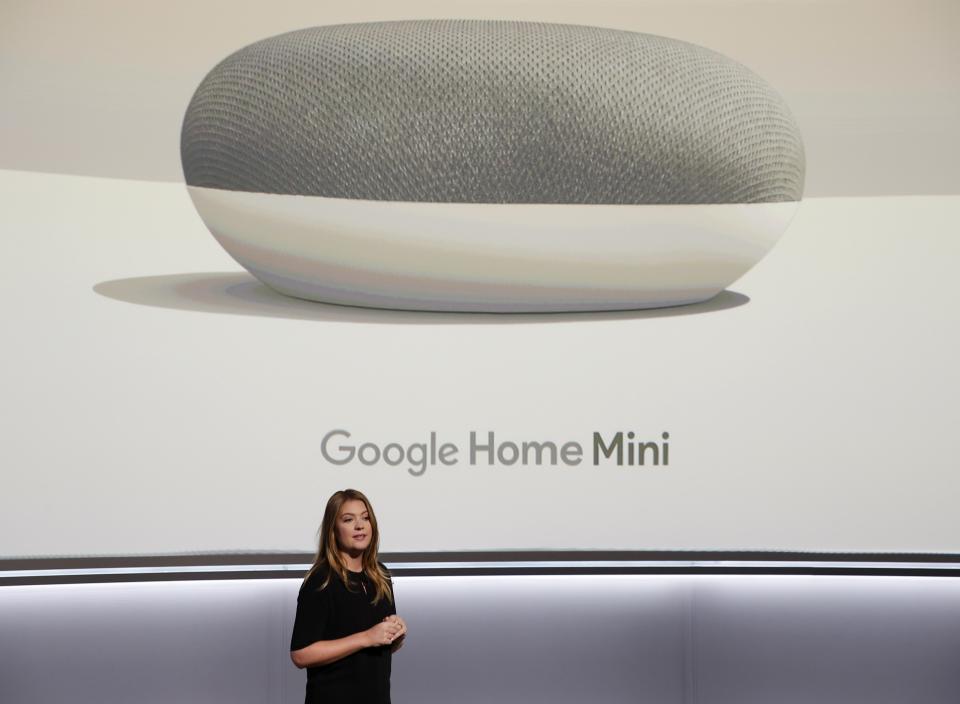Google's Home recording scandal makes a case against being an early adopter

The 2014 movie “Kingsman: Secret Service” was not particularly good — a forgettable movie marketed to teen boys. But even though it was 95% silly, the remaining 5% was sharp commentary on technology, cost, and convenience.
The villain, played by the great Samuel L. Jackson, is a billionaire “philanthropist” who offers the world free cellphones and internet. Naturally, the free phones turned out to be devices that allowed this villain to control the entire world.
Today, technology, all on its own, has been playing out in an eerily similar way, though without a comic-book villain behind it. The latest example comes from Google (GOOG, GOOGL), whose new Home device apparently recorded an individual 24/7. It was a demo unit given to reporters.
Google promptly fixed this problem before the device was released to the general public, but the “whoops that device in your bedroom just recorded your most intimate moments” is something that should not be brushed aside. In fact, it makes a case against being an early adopter of new technology, and implicates companies’ privacy policies.
You never know what other second- or third-order effects will emerge after the first release, or even second-generation products. There’s the debate over Amazon releasing the audio from an Echo device regarding a murder and the government’s rights to subpoena tech firms for data or to tap phone lines — the list goes on.
Beautiful, unibody Trojan horses?
People are generally aware that 21st century technology has the potential for problems. And with good reason: Stories abound of hacked babycams, phones turned into listening devices, and smart-enabled cars being turned off on the highway remotely.
News stories may educate us about these dangers, but they are largely absent from our minds as we invite technology into our lives. Perhaps this is due to our trust in capitalist incentives: If Facebook, Google, Apple, and Microsoft screw up, their business will tank.
But as Google’s situation tells us, mistakes can and do happen, and you wonder what’s happening that has not been reported yet. For example, there’s long been speculation that the software on our phones allows others to listen in on us. Apple and Google vigorously deny this, but one often wonders whether granting microphone access to an app is somehow connected with seeing an ad about something that you just talked about.
Maybe just wait until someone else tastes the soup first
The externalities from all-seeing and all-knowing tech are getting more complicated and cannot be solved by simply placing a strip of tape over your laptop camera. In the case of Amazon Echoes and Google Homes, it’s not feasible to upturn a Dutch oven over your Alexa every time you want privacy, nor would you want to. With Google’s execution of the headphone jack, following Apple’s footsteps, wireless audio protocol will doubtless explode, and with it countless more stress points ripe for abuse.
Unfortunately, there are no elegant solutions here. So where do you draw the line? Your iPhone may be listening just like those nosy Google Homes. Perhaps one way could be to triage how bad it would be to wait on purchasing that hot new device. For example, you can live without a smart speaker (not essential), but a phone would be difficult.
In the end, it probably reverts to a constant weighing of this convenience against the desire for privacy, and watching the early adopters closely. Letting them deal with the bumps and trials. This at least allows you the benefit of reviews, articles, investigations, and leaks. Fortunately, there are lines of people — some of them camping — ready to be your poison food taster.
Ethan Wolff-Mann is a writer at Yahoo Finance. Follow him on Twitter @ewolffmann. Confidential tip line: emann[at]oath[.com].
Read More:
Consumer watchdog is killing ‘payday loans’ — here’s what will take their place
Equifax’s breach is an opportunity to fix a broken industry
ATM fees have shot up 55% in the past decade
Big bitcoin-friendly companies like Microsoft and Expedia hedge their bet
The real reason Mexico will never pay for the Trump’s wall: It’d be ‘treason’
How Waffle House’s hurricane response team prepares for disaster
Trump weighs slashing one of the most popular tax deductions
A robot lawyer can fight your parking tickets and much more
Consumer watchdog is making it easier for consumers to sue banks

 Yahoo Finance
Yahoo Finance 